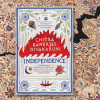A mesmerising journey of life’s twists and turn

The Covenant of Water by physician and author Abraham Verghese tells the story of three generations of an Orthodox Saint Thomas Christian family in Kerala. Through suffering and loss, triumphs and victories, the importance of familial ties is examined and supported. In the Kerala of the 1940s, blood ties were sacred, but "family" also meant helpers who worked for you. Members of the three-generational family seem to be under a curse which causes its members to drown in water. The mystical power of water in our lives is explored with precision and sensitivity in the novel.
The biggest triumph of the book is the language. The poetic beauty of Abraham Verghese's writing and his mastery of words will keep the reader enchanted as he weaves magical sentences, paragraphs, and chapters.
The pace picks up significantly in the second half of the book like a thriller unravelling: one of the characters, Elsie—does she die or go into hiding? Why? She has left her new-born infant with her in-laws and disappeared even though she lost her first child to a terrible accident. Hers is a complex character and we sympathise with her bereavement despite her infidelity. In life, circumstances shape our character; we hold everyone including ourselves to the highest moral standards, not understanding that sorrow and life's challenges compel certain behaviours. Through Elsie's character, this becomes more apparent to us.
In this book, flawed characters redeem themselves through love, and characters like Ammachi show you that love conquers all. Married at age 12 to a man in his 40s, she sets an example of the virtuous woman who accepts her fate and holds her family together with leadership and love. In return, she is loved and revered by anyone who knows her—an ideal situation in a matriarchal society.
Lenin's involvement with the Naxalite movement adds to the exciting pace of the story. A man, hunted by the authorities but cheered on by those who share his ideology in the hopes of a more just society, Lenin is portrayed with sensitivity and seriousness. He especially wants justice for indigenous people who are exploited first by the British and then by subsequent rulers. Verghese addresses a universal injustice.
There is another kind of exploitation that the author discusses: He addresses questions like whether family members and relatives are entitled to inherit land they never worked on, and if so, why.
The serious aspects of the book have a delightful balance in the portrayal of the leisurely lives of the British colonists. There were lavish parties, Christmas celebrations, and the luxurious lifestyle of the tea gardens to be enjoyed. Digby for example, is a doctor that arrives on this scene from the Glasgow of the 1920s, where unemployment and poverty were at their worst. The partying, fine dining, and life of leisure prove to be the ideal setting for the kind of scrapes he gets himself into.
However, Digby and the doctor before him emerge as completely "cleansed" from their experiences in the leprosarium. Details of the disease, social stigma, and slow response to treatment frustrate the missionary personnel who run it. Yet, the fiery zeal to serve humanity no matter how hopeless the disease, enables them to take small steps towards treating the disease with at least some amount of success.
There are several historical references in the book which add a relatable back-drop—the Partition, the caste system, the famine which killed three million people, and the arrival of electricity and radio. The lives of the Christian community in Kerala, in the setting of Kerala's waterways and scenic coasts, are a delight to read about.
There are detailed medical procedures described in the book in such a way that a layperson can understand them. The tension of whether the procedure will be a success or not is also added to make it a page-turner.
There are detailed medical procedures described in the book in such a way that a layperson can understand them. The tension of whether the procedure will be a success or not is also added to make it a page-turner.
It is worth noting that the book is not without humour and satire. Philipose for instance, is a journalist, which he thinks is his calling. His domestic life is fraught with insurmountable problems and his opium addiction is an added cause of his being disgruntled with life. But as a journalist, he is very influential—he writes about inefficiency, red tape, and corruption in government offices. It was hilarious to read about how someone in a government office basically sits all day and ties and unties a file holding papers.
There's something to be found for every reader in this book!
Nusrat Huq is a teacher at Sunbeams and a member of The Reading Circle.

 For all latest news, follow The Daily Star's Google News channel.
For all latest news, follow The Daily Star's Google News channel. 









Comments